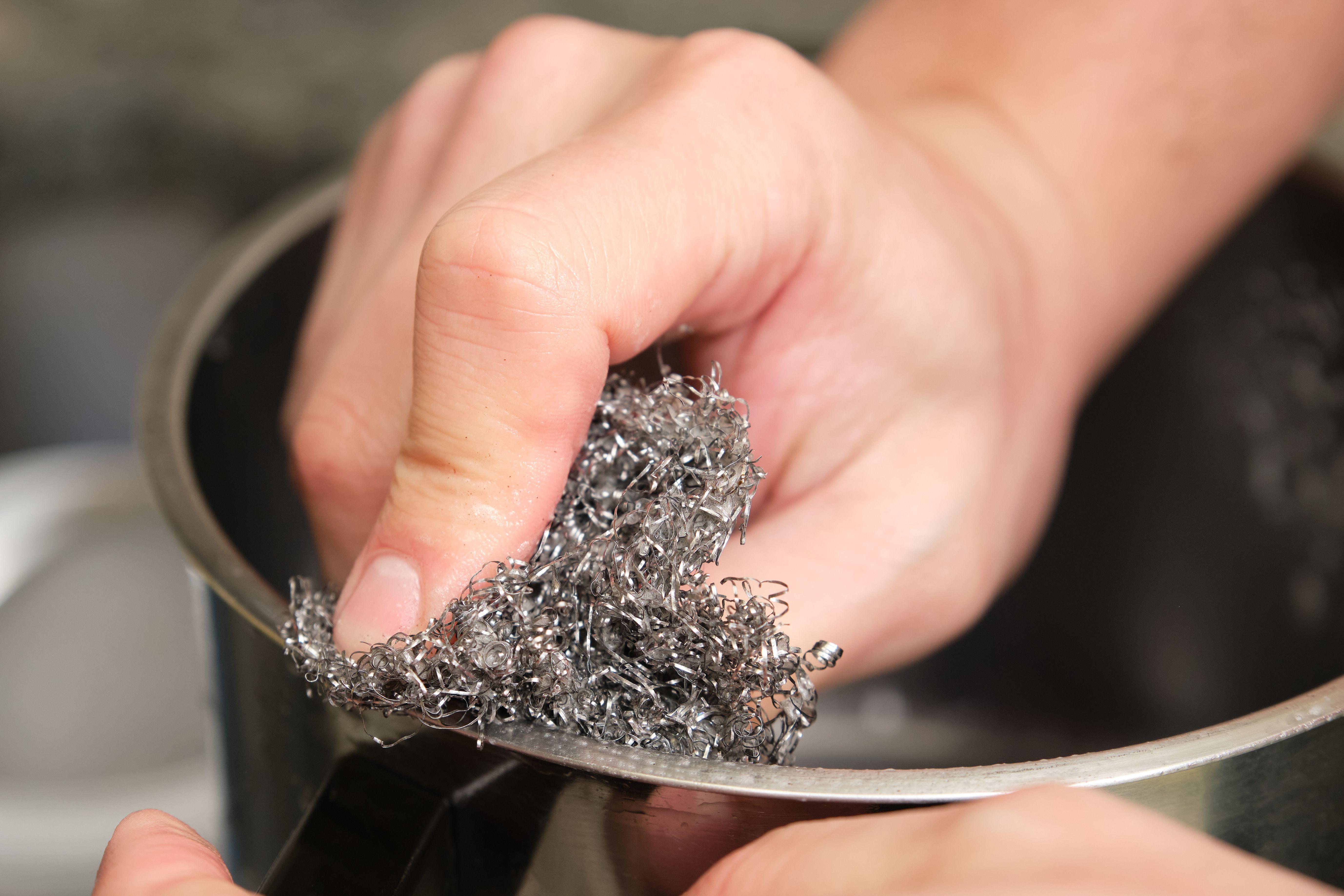Steel wool is an effective tool for cleaning, sanding, and removing rust, but there are some materials you should never use it on. Steel wool is essentially a clump of thin steel wire strands that are bundled together into a sponge-like object.
While the steel wool's abrasive quality is beneficial for some household tasks, it can cause permanent damage to things like nonstick cookware, marble countertops, and stainless steel surfaces. Its rough texture can cause serious scratches and strip and dull polished surfaces.
To prevent accidental and potentially costly damage, here are the things you should absolutely avoid cleaning with steel wool.
Related
1. Stainless Steel
Stainless steel is known for its durability—but even so, you should never use steel wool to clean it. Whether it's a stainless steel sink or appliance, the abrasive texture of steel wool can cause small scratches that dull the metal's shine. Not only do these permanent scratches look unsightly, they can affect the material's durability and allow for rust and corrosion to happen.
2. Nonstick Cookware
It's the coating on nonstick cookware that prevents food from sticking to it. If you use steel wool to clean a nonstick pan, you run the risk of damaging the coating. The abrasive steel wires can scratch and chip the surface, which doesn't just affect the cookware's nonstick quality, it can potentially be harmful. Some nonstick pots and pans have a coating that's made with chemicals that are harmful when ingested, which is what can happen if the cookware is scratched or chipped.
3. Glass Surfaces
Avoid using steel wool on glass surfaces at all costs. The rough texture will instantly scratch glass, creating an etched-like effect. This distorts the view through the glass, dulls the surface, and makes it more prone to being dirty, as dust and grime gets trapped in the scratches.
4. Polished Metals
If you want to restore the shine on a polished chrome or brass fixture, stay away from steel wool. The rough texture of steel wool can cause scratches and damage the polished finish of metals. This dulls their shine but also makes them susceptible to oxidation.
5. Natural Stone Countertops
Natural stone countertops are a big investment and proper care is essential to prevent damage and costly replacements. Do not use steel wool on any natural stone countertops, whether that's granite or marble, as it can cause visible scratches. These affect the look of the countertops, but also make them more prone to stains and damage. The steel wool breaks the surface barrier of the natural stone, allowing liquids—whether water, oil, or wine—to enter the porous stone and cause potentially permanent stains.
6. Ceramic Tile
Most ceramic tile is glazed, not just for the purpose of creating a shiny finish but to make the material nonporous. If you use steel wool on ceramic tile, you can damage this coating. The roughness of the steel wool will scratch the tile and not only will you be left with unsightly marks that more than likely cannot be removed, the tile will now be porous. This means liquids can seep in and stain the tile, which is especially problematic in a humid environment such as a bathroom or a in a kitchen where food splatter can land on a ceramic backsplash.
7. Wood Surfaces
Steel wool can damage wood surfaces, especially if the wood is soft or untreated. Steel wool can cause scratches, dents, and chips which in turn can allow liquids to seep in and cause stains. The abrasive texture can strip the finish on painted or lacquered wood and affect its smooth texture. Additionally, if you scrub a wood surface with steel wool, small pieces of the steel wires can break off and get stuck inside the wood. You may not even be able to see the pieces, but they can later show up in the form of rusty stains.
8. Plastic Items
If you're trying to remove stuck-on foods from plastic food storage containers, avoid using steel wool. The plastic is soft and scratches easily under the abrasive pressure of stainless steel. The scratches will look plastic containers look old and dingy, plus they'll make them more susceptible to hard-to-remove food stains.



